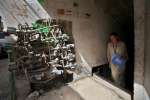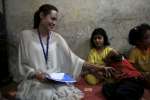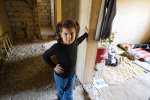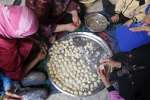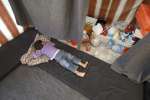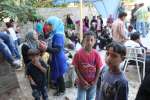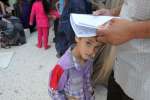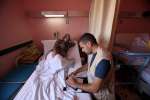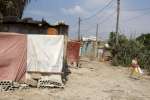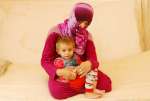- Text size
 |
|  |
|  |
| 
- عربي
Syrian refugees struggle to reach family in Malta
News Stories, 7 September 2015
CATANIA, ITALY, Sept 7 (UNHCR) – For Ali and Mohammad, both 23, the hardest part of their journey should have been over once they'd escaped hardship, cruelty and violence in the ancient and embattled Syrian city of Palmyra.
Before making the painful choice to leave, Mohammad lost both his home and his 15-year-old brother in a bomb explosion. He also left behind three married sisters who cannot afford to leave Syria.
"I just want to help my family," he said, staring at Ali's phone as his friend flicks through images of Palmyra's famous Greco-Roman buildings which militant groups have reduced to rubble.
Ali is also worried about his family stuck in Palmyra. His older brothers, aged 27 and 26, are in detention. Mohammad and Ali lived in constant fear of one side or another in this complicated conflict either attempting to enlist them, or accusing them of serving the enemy.
One glimmer of hope is Ali's uncle, who had offered the childhood friends a home and some work at his auto painting firm in Malta. The boys had scraped together the $3000 needed for the journey by selling Mohammad's family car and by borrowing money from relatives.
"My uncle has been in Malta for 25 years so that's where we're going," said Ali, sitting in a large storeroom attached to a mosque in Catania, Sicily, their last stop before Malta. "There's nothing left of my city."
Faced with no other choice than to try to get to Malta illegally, the pair left Palmyra for Turkey. On their first attempt to cross the Aegean sea to Greece their boat began to sink and the coast guard returned them to the Turkish coast.
On the second attempt, Ali and Mohammad once again found themselves on a sinking ship but were this time rescued by the Greek authorities, who brought them to the island of Lesbos.
After two days on the island, they boarded a ferry to Athens. From there, they joined the thousands of others crossing Europe via the Balkans. The pair caught a bus to Macedonia and a train to Serbia before walking through a forest by night to reach Hungary. They then enlisted the help of a smuggler to reach Vienna, where they took a train to Milan, another to Rome and a final train to Catania.
It was here that the imam of Catania mosque discovered the pair huddled in the street during a rainstorm with nothing but the clothes on their backs. Although the mosque often takes in refugee families, laying out mattresses on the white tiled floor of the storeroom for them to sleep on, it rarely takes in young men. It made an exception for Ali and Mohammad following their extraordinary voyage through Europe.
On a sleepy late summer afternoon, Ali and Mohammad are still scared to leave the sanctuary. They know if they are found by police in Catania, and fingerprinted, they will have to claim asylum in Italy. Their dream of reuniting with Ali's uncle hangs in the balance.
"We just hope all this will be worth it," said Ali. "And we'll get to Malta for the sake of our families. We're doing this for them."
* Names have been changed for protection reasons.
By Alice Philipson, Italy

